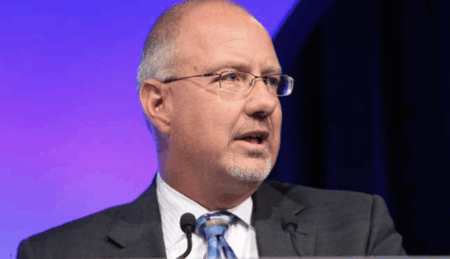The US Department of Transportation’s (USDOT) Federal Highway Administration (FHWA) has announced US$14.2m in grants for states under a new program to explore alternative revenue mechanisms to help sustain the long-term solvency of the Highway Trust Fund (HTF).
The Surface Transportation System Funding Alternatives (STSFA) grant program will fund projects to test the design, implementation and acceptance of user-based alternative revenue mechanisms. STSFA was established under the Fixing America’s Surface Transportation (FAST) Act. The program will help address some of the concerns outlined in ‘Beyond Traffic’, the USDOT report issued last year that examines the challenges facing the USA’s transportation infrastructure over the next three decades, such as a rapidly growing population and increasing traffic. Gridlock nationwide is expected to increase unless changes are made soon.
The eight projects will pilot a variety of options to raise revenue, including on-board vehicle technologies to charge drivers based on miles traveled, and multi-state or regional approaches to road user charges (RUCs). The projects will address common challenges involved with implementing user-based fees, such as public acceptance, privacy protection, equity and geographic diversity. The projects will also evaluate the reliability and security of the technologies available to implement mileage-based fees.
The eight programs to receive funding are:
California Department of Transportation (Caltrans) will receive US$750,000 to trial a road user charge (RUC) using pay-at-the Pump/ charging stations; Delaware Department of Transportation (DelDOT) will get US$1.49m to test user fees based around on-board mileage counters, in collaboration with members of the I-95 Corridor Coalition; Hawaii Department of Transportation receives US$3.99m to trial user fee collection based on manual and automated odometer readings at inspection stations; Minnesota Department of Transportation (MnDOT) will be given US$300,000 to use of mobility as a service providers (MaaS) as the revenue collection mechanism; Missouri Department of Transportation (MoDOT) receives US$250,000 to implement a new registration fee schedule based on estimated miles per gallon; Washington State Department of Transportation (WSDOT) is awarded US$3.8m for testing critical elements of interoperable, multi-jurisdictional alternative user-based revenue collection systems, and piloting methods of road usage reporting with Washington drivers; Oregon Department of Transportation (ODOT) receives two grants. The first, of US$2.1m is for improvements to the state’s existing road usage charge program (OReGO). The second, of US$1.5m is for establishing the consistency, compatibility, and interoperability, in road user charging for a regional system, in collaboration with members of the Western Road User Charge Consortium (WRUCC).
“Reliable funding is essential to ensuring we have a sound transportation system to support the economy,” said US Transportation Secretary, Anthony Foxx. “More investment in transportation in greatly needed, and we must find new solutions to prepare for the travel demands of the nation’s growing population.”
Federal Highway Administrator, Gregory Nadeau, noted, “We’re thinking ahead about ways to fund our highway system and be equipped for the nation’s economic future. It’s a system people rely upon for their jobs and essential services, for businesses to serve their customers, and for freight shippers to deliver their goods.”




